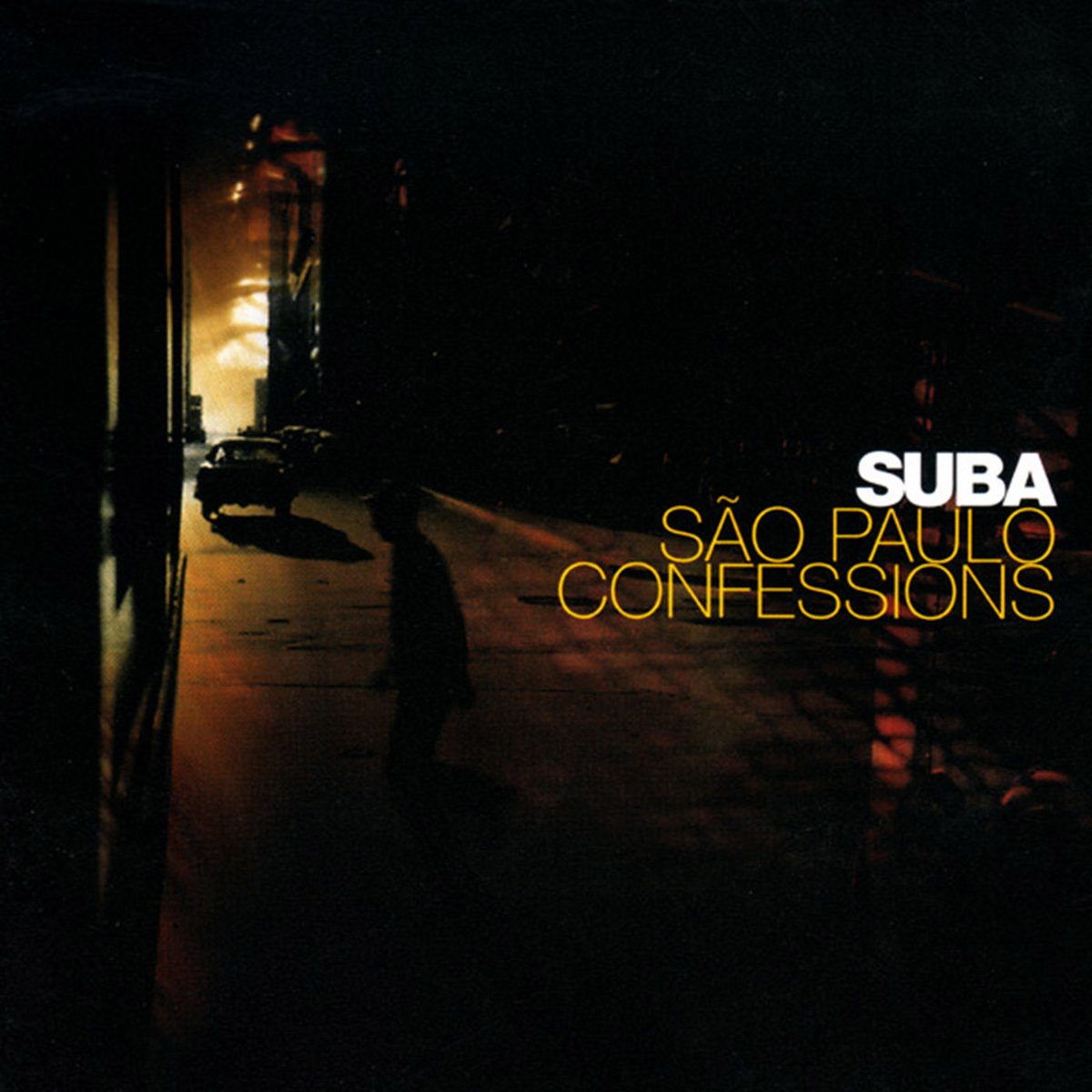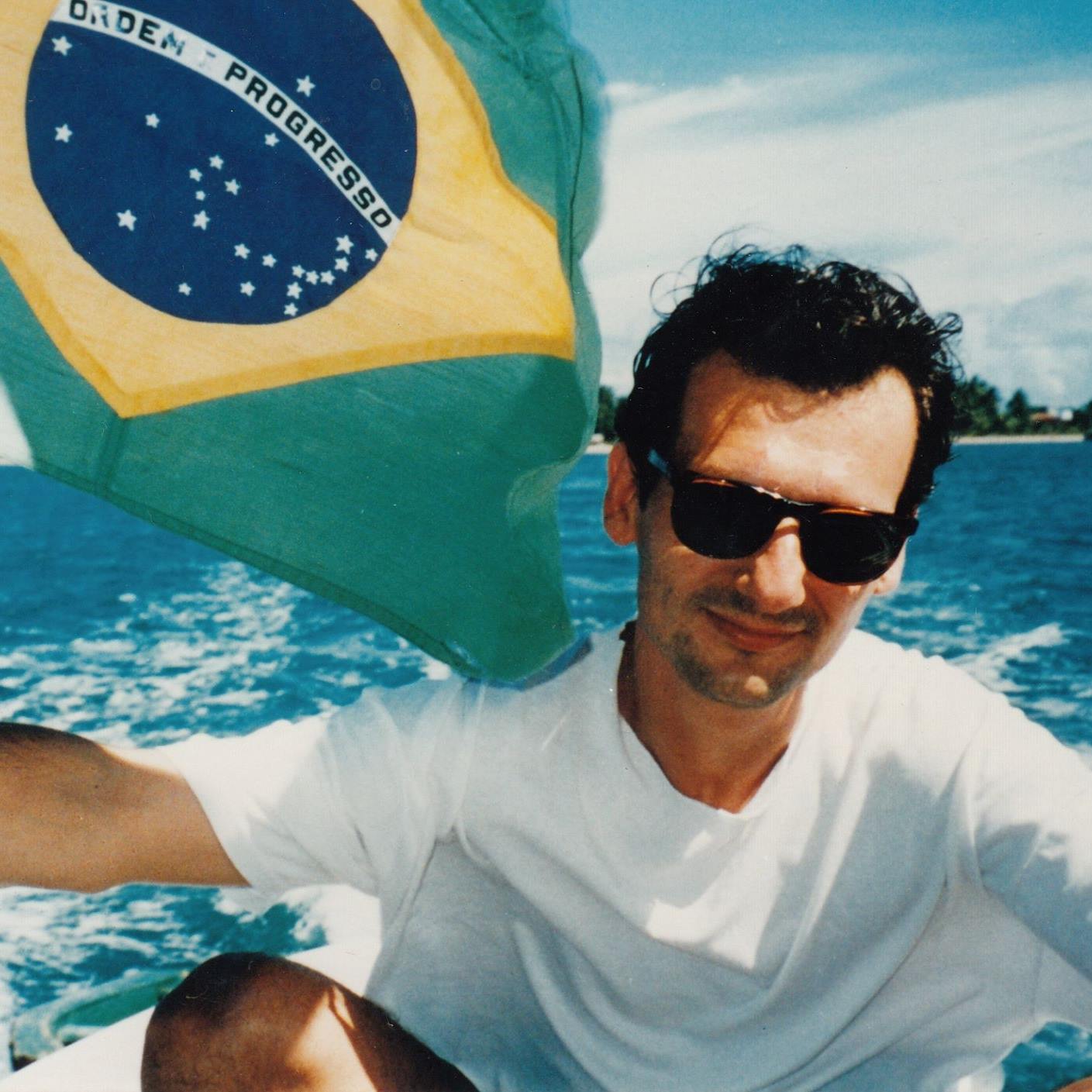You might ask yourself: why is a Brazilian record on an Ex-YU music page? Well, let me explain how I stumbled upon what would become one of my favourite albums of all time.
I first found São Paulo Confessions through the 1001 Albums Generator, of all places. It had a surprisingly low average rating, but its cover caught my eye — a grainy street in the rain, neon lights blurred in the distance. Usually, the overlooked and underrated albums on that list are the most fascinating, so I pressed play. I had never heard of Suba before, but with that name and an album titled São Paulo Confessions, I assumed he must be Brazilian. But a quick search told me otherwise: Mitar Subotić, born in Serbia. In minutes, I was reading his whole story, linking him back to EKV, exploring his work as Rex Ilusivii, and discovering his bold move from Belgrade to São Paulo. Within a single night, Suba became one of my favourite producers and one of the most fascinating artists I had ever encountered.
And yet, as soon as I felt that excitement, I discovered the tragedy. On the very night the album was being promoted in 1999, Suba died in a fire in his studio. Some accounts say he tried to save the recordings; others, including a Balkan documentary I later found, suggest this wasn’t true. Either way, the fact remains: the masterpiece was released, but its creator sadly taken from us.
São Paulo Confessions is a one-hour journey through warm alleys, neon light, crowded clubs, and quiet dawns. A mix of downtempo, samba, bossa nova, and electronic experimentation, it’s unlike anything else of its era. While Europe was deep into trip-hop and electronica, Suba was fusing Brazilian rhythms with futuristic textures, creating something both deeply local and strikingly global. The album is best enjoyed at night — while walking the city, sitting in a bar, or people-watching through a rainy window.
Tantos Desejos opens the record with ethereal beauty, Cibelle’s vocals floating over delicate piano and electronic textures. It’s dreamy and romantic, as if she’s singing about a person, a place, or perhaps the city itself. Você Gosta, with Taciana Barros on vocals, pushes further into downtempo territory, Suba’s production laying down percussion that feels both playful and dangerous. The voices are woven in as textures rather than leads, making the city itself feel like the protagonist.
On Na Neblina, Suba pulls in broken beats and jungle undertones, decades ahead of the lo-fi D&B revival of today. Segredo, featuring Katia B, slows things down again into a lush, watery dreamscape — part samba, part Hiroshi Yoshimura ambient soundscape. And then Antropófagos bursts through like a carnival at midnight: funky, vibrant, unapologetically Brazilian.
But it’s not all celebration. Sereia takes us somewhere darker, its hypnotic vocals and swirling synths pulling you into a maze of shadows and street corners. That descent is broken by Samba do Gringo Paulista — Suba’s own samba, a nod to his nickname as the “foreign Paulista.” It’s light, upbeat, and carnival-like, though personally I’m more drawn to the darker, nocturnal passages of the record.
From there, the journey gets more trippy. Abraço is psychedelic and hypnotic, repeating grooves and voices until you lose track of time. A Noite Sem Fim is an ambient drift, sampling breathing exercises as if guiding you through a surreal hallucination in the rainforest. Pecados da Madrugada closes the album on a more unsettling note, eerie at first but gradually blossoming into beauty — perhaps a metaphor for the album itself, or Suba’s story.
What makes São Paulo Confessions so special is the atmosphere Suba creates. The record sounds and feels like São Paulo. You can hear the rain and traffic, the late-night laughter, the melancholy, the contradictions of a vast and chaotic city. And at the centre of it all is Suba in the recording studio, a Serbian artist who found his voice thousands of miles from home, fusing two worlds into several seamless confessions.
I was lucky enough to track down a near-mint copy on vinyl — a birthday gift I’ll always treasure. But even without the physical record, this album is an experience like no other. It’s a masterpiece born of curiosity, migration, and tragedy. Suba didn’t get the chance to build the legacy he deserved, but this one record is enough to cement him as one of the greats.
For me, São Paulo Confessions is a selection of confessions whispered in neon glow. A love letter to a city. A final testament from a brilliant artist gone too soon.



